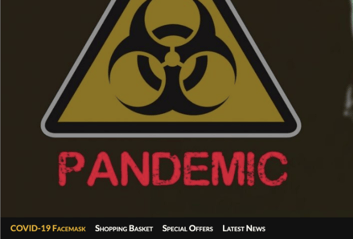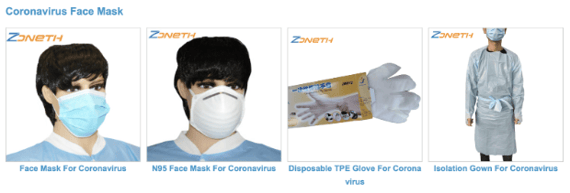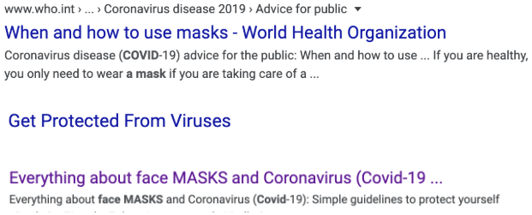With any crisis or disaster, there is a very short time between when the event becomes public knowledge and its inevitable exploitation by bad actors. After hurricanes, tornadoes, earthquakes, and any other natural or man-made disaster, fake domain names and websites appear in short order seeking to exact donations from good Samaritans seeking to help those in need. So it’s no surprise that soon after the discovery and public awareness of the new coronavirus and the associated illness COVID-19, bad actors are seeking benefit at the expense of others.
With a quick scan of newly registered domain names and websites, there are hundreds of sites targeting people worried about contracting COVID-19. With domain names integrating “face”, “mask”, “COVID” and “coronavirus”, clever merchants trading on concern and paranoia hawk masks and protective gear to all those who are willing to pay. In this blog, you’ll find frightening images, misinformation, misspellings, and, future misgivings of the people who opt to transact with these sites.

 Search engines and marketplaces seem to have done a good job of curating the first pages of their search, however, within a few clicks it’s easy to find misinformation in ads and content that might lead uninformed to purchase all kinds of products that purport to help protect people from contracting the virus. With headlines like “Get protected from viruses”, promotions of e-books about the use of masks follow just a few scrolls down after the World Health Organization (WHO) statements about the proper use of masks by those infected with the virus. (See sample ads below promoting these e-books.)
Search engines and marketplaces seem to have done a good job of curating the first pages of their search, however, within a few clicks it’s easy to find misinformation in ads and content that might lead uninformed to purchase all kinds of products that purport to help protect people from contracting the virus. With headlines like “Get protected from viruses”, promotions of e-books about the use of masks follow just a few scrolls down after the World Health Organization (WHO) statements about the proper use of masks by those infected with the virus. (See sample ads below promoting these e-books.)

Why is this important to brands? During any global crisis, it’s critical for brand protection and brand security organizations to look for the exploitation of their own brand in association with global events. During a crisis, be sure to look for new apps, sites, ads, marketplace listing and social handles that seek to exploit your brand and a potential association with a crisis.